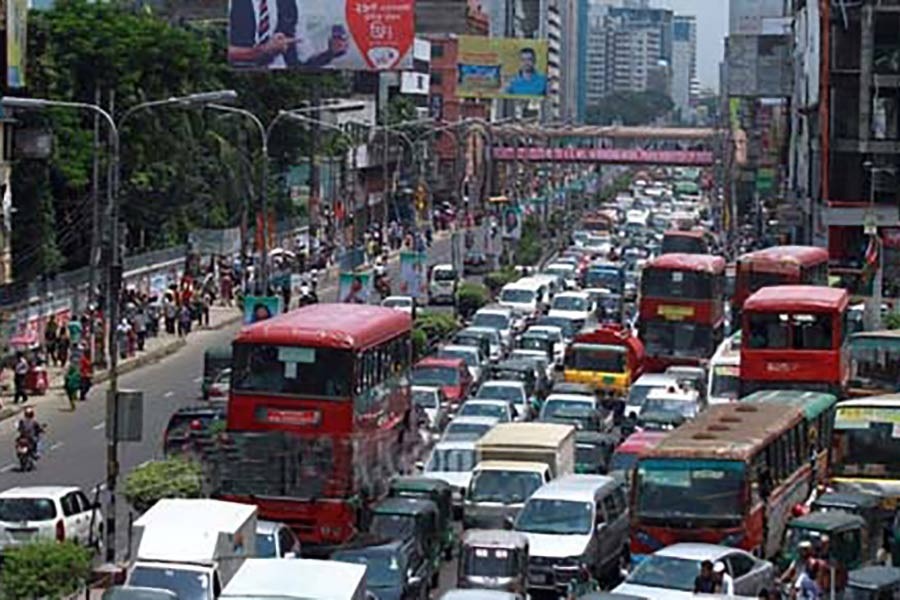
Published :
Updated :

The bustling megacity of Dhaka has long been mired in a series of public nuisance, which earned it the dubious distinction of being one of the least liveable cities in the world. One would expect the government to take determined and effective steps to gradually address this mess, ensuring that living conditions for city dwellers improve and the city sheds this opprobrium. Ironically, however, the situation is seemingly getting worse, not better, by the day. Take, for example, the problem of illegal occupation of footpaths and roadsides by hawkers. These days, this long-standing problem seems to have reached a menacing proportion. In many areas it has almost become impossible to walk on the footpath. The problem has come to such a pass that even the sides of the railway tracks are not being spared. A recent picture published in the Financial Express shows hawkers not only set up makeshift shops on both sides of the rail tracks in the city's Jurain area, but also tuck themselves into the narrow space between the parallel lines.
Under the politically elected government, it was often alleged the city authorities could never free the footpaths from illegal occupation because of an unholy nexus between politicians, the police and musclemen. This illegal practice is sustained by a massive amount of daily toll collection from spot selling of footpaths and roadsides. But the interim government is not a political government. Why, then, has it failed to take a decisive action against this rampant illegal business that so brazenly occupies public space and inflicts immense distress upon commuters? Is this inaction a sign of weak governance, indifference, or a mere continuation of the same laxity that has plagued the city for years?
Then there is the problem of unbridled growth in the number of battery-run auto-rickshaws, which has made city rides riskier and traffic jams worse. These auto-rickshaws are not supposed to be allowed to run on the main roads, but over the last year or so, the auto drivers have been enjoying so much freedom that they are freely plying from one end of the city to the other, breezing through flyovers, zigzagging across lanes and even using the wrong side of the roads, making the city's traffic a total mess.
The proliferation of illegal hawkers and auto-rickshaws are just two of the long list of civic menaces city dwellers are grappling with daily. Whether it is the encroachment of footpaths or the brazen disregard for traffic laws, the common denominator is regulatory failure. Now, the big question is, how can the city get rid of this mess. At this stage of massive accumulation of civic blights and a lack of effective leadership in city corporations, there is little to no chance of the situation being improved. Earlier, a task force formed by the interim government recommended unifying the two city corporations and introducing a city governance system where a single entity, headed by an elected public representative, would be responsible for the overall planning, coordination and delivery of all urban services. Regrettably, the proposal has remained stuck on paper. The interim government, therefore, must straighten things out and accelerate the process of handing over the responsibility of governance into the hands of elected representatives. Only the quality of future leadership, political will and radical solutions like decentralisation and implementation of city governance offer hope.


 For all latest news, follow The Financial Express Google News channel.
For all latest news, follow The Financial Express Google News channel.